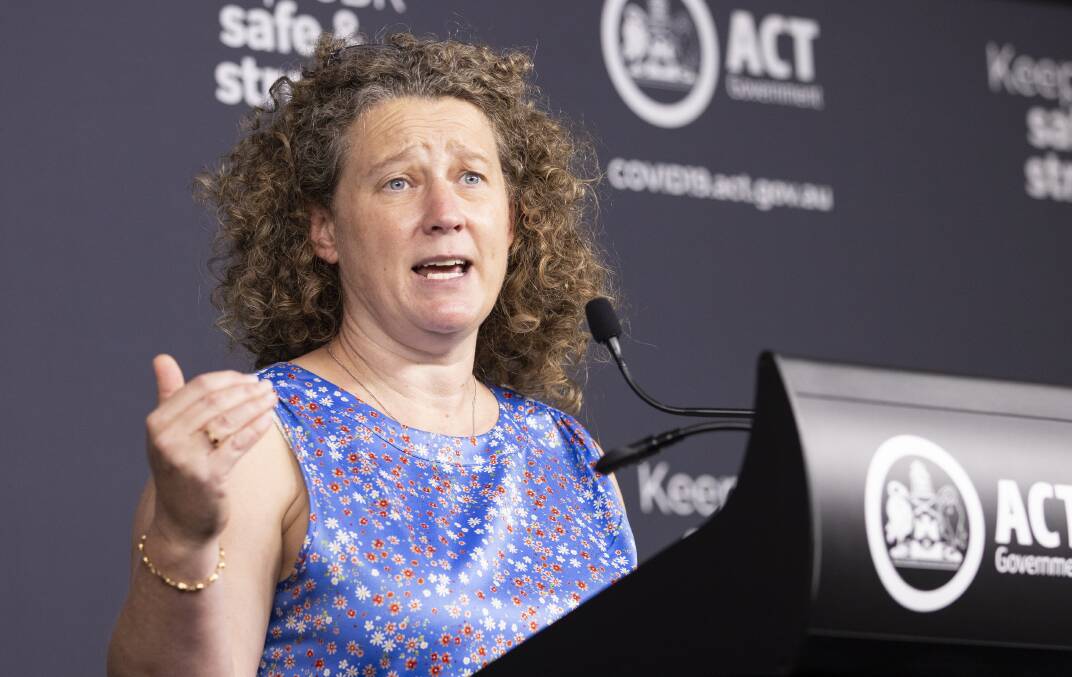COVID cases in the ACT are set to triple in the next four weeks, putting much more pressure on a health system already under great strain as staff contract COVID and flu.
The territory's chief health officer Dr Kerryn Coleman warned that the current thousand or so cases a day would reach 2000 or even 3000 by early August.
She thought that would inevitably mean more deaths from the virus.
The surge has been triggered by new sub-variants of the Omicron variant which are much more infectious than previous ones.
From midnight on Monday night, a person who has had COVID-19 should get tested and isolate again if they have symptoms more than 28 days after being cleared from that previous COVID-19 infection. Previously, they would have been deemed as clear for 12 weeks after the previous infection.
Dr Coleman could not rule out compulsory mask wearing in future. "I could never rule out introducing a mandate. We don't know what's around the corner."
But she urged Canberrans to wear masks and to stay away from aged care centres if they have symptoms. "Don't attend high risk settings if you have symptoms," she said. "I strongly urge people to do what they can to minimise transmission."
People who could work from home should work from home, she advised. "If it's possible for you to work from home do this," she said.
She said the health system is already "struggling" with the weight of COVID and flu, adding: "We do expect this current wave to continue to build which will place further pressure on the health system."
The hospital system is already under great strain, according to Dave Peffer, chief executive of Canberra Health Services. On top of COVID and flu, school holidays meant more people on the road and that meant more accidents. Snow season meant the same.
"The system will cope but it will come at a cost of a time penalty to patients and strain on staff," he said.
By that, he meant longer waits for non-emergency treatment plus cancellations.
"We will come through the other side of winter but it will come at a cost," he said.
He urged people to continue to have all the vaccinations for which they are eligible. Sixty per cent of those on ventilators in intensive care had not been vaccinated.
To give an idea of the pressure on the system, he said that a quarter of junior, non-specialist doctors were currently not available for work because of COVID, flu or other reasons.
"For us, we do see dislocation," he said.
Emergencies were being dealt with but some patients were waiting for four hours for treatment after that initial triage.

Dr Coleman spelt out what she wants Canberrans to do. It echoed what the committee of states and territories chief health officers decided on Friday:
- Stay up to date with vaccinations.
- Wear a mask in crowded, indoor environments including on public transport.
- Ensure indoor spaces are well ventilated.
- Stay home if you have any COVID-19 symptoms, no matter how mild, and get tested.
- Do not attend high-risk settings such as health care (unless seeking treatment), aged care and disability settings or correctional facilities if you have any symptoms of COVID-19, no matter how mild.
- Employers should review their occupational health and safety risks and mitigations, and their business continuity plans. They should consider the feasibility of some employees working from home, and support employees to take leave when sick.
- Practice good respiratory and hand hygiene.







